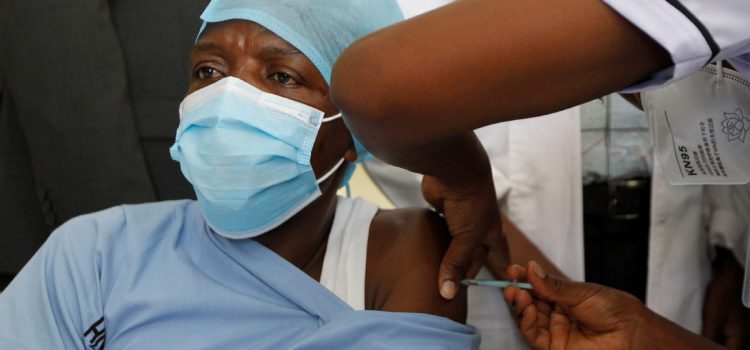
1. Introduction: Unveiling the Healthcare Funding Gap
Across Africa, governments are facing significant challenges in adequately funding their healthcare systems, leading to widespread disparities in access to quality healthcare services. In this article, we delve into the root causes of this funding shortfall and its profound impact on public health outcomes.
2. The Funding Crisis: Straining Healthcare Systems
Limited healthcare funding poses a severe strain on Africa’s healthcare systems, hindering efforts to provide essential services, improve infrastructure, and address pressing public health challenges. As a result, millions of people across the continent continue to lack access to basic healthcare services, exacerbating health disparities and inequalities.
3. Underfunded Healthcare Systems: Root Causes and Consequences

Several factors contribute to the under funding of healthcare systems in Africa, including competing budget priorities, inadequate healthcare infrastructure, and reliance on external aid. These funding challenges have far-reaching consequences, including reduced access to essential medicines, limited healthcare workforce capacity, and compromised patient outcomes.
4. Impact on Health Outcomes: Magnifying Inequalities
The inadequate funding of healthcare systems in Africa exacerbates existing health inequalities, disproportionately affecting vulnerable populations, including women, children, and marginalized communities. Limited access to healthcare services leads to higher rates of preventable diseases, maternal mortality, and poor health outcomes, perpetuating a cycle of poverty and ill health.
5. External Aid Dependency: Bridging the Gap
While external aid plays a crucial role in supplementing healthcare funding in Africa, over-reliance on foreign assistance is not a sustainable solution. African governments must prioritize domestic healthcare financing, invest in health system strengthening, and develop sustainable funding mechanisms to ensure long-term resilience and self-reliance.
6. Policy Reforms and Priorities: Charting a Path Forward
Addressing the healthcare funding crisis in Africa requires bold policy reforms, innovative financing mechanisms, and a commitment to prioritizing healthcare as a fundamental human right. Governments must allocate adequate resources to healthcare, implement cost-effective interventions, and foster partnerships with the private sector and civil society to drive sustainable change.
7. Community Engagement and Advocacy: Amplifying Voices
Community engagement and advocacy play a pivotal role in holding governments accountable for their healthcare financing commitments and advocating for equitable access to quality healthcare services. Empowering communities to demand better healthcare outcomes and participate in decision-making processes can drive meaningful change at the grassroots level.
8. Toward Health Equity: Building Resilient Healthcare Systems
As Africa grapples with the healthcare funding crisis, there is an urgent need for collective action to build resilient healthcare systems that prioritize equity, accessibility, and quality of care for all. By investing in healthcare financing, strengthening health infrastructure, and fostering multi sectoral partnerships, African governments can pave the way toward achieving universal health coverage and improving health outcomes continent-wide.
Key Points Summary Table:
| Key Point | Description |
|---|---|
| The Funding Crisis | Limited healthcare funding strains Africa’s healthcare systems, hindering access to quality services and exacerbating health inequalities. |
| Underfunded Healthcare Systems | Root causes include competing budget priorities, inadequate infrastructure, and reliance on external aid. |
| Impact on Health Outcomes | Inadequate funding leads to higher rates of preventable diseases, maternal mortality, and poor health outcomes, magnifying health disparities. |
| External Aid Dependency | While external aid is crucial, African governments must prioritize domestic healthcare financing for long-term sustainability. |
| Policy Reforms | Bold policy reforms and investment in health system strengthening are needed to address the funding crisis and prioritize healthcare as a human right. |
| Community Engagement | Empowering communities to advocate for better healthcare outcomes and participate in decision-making processes is essential for driving change. |
| Toward Health Equity | By investing in healthcare financing, infrastructure, and partnerships, African governments can work toward achieving universal health coverage and improving health outcomes for all. |
The healthcare funding crisis in Africa requires immediate attention and concerted efforts from governments, stakeholders, and communities to ensure equitable access to quality healthcare services and improve health outcomes continent-wide.










